Related Research Articles

Joseph Cheshire Cotten Jr. was an American film, stage, radio and television actor. Cotten achieved prominence on Broadway, starring in the original stage productions of The Philadelphia Story (1939) and Sabrina Fair (1953). He then gained worldwide fame for his collaborations with Orson Welles films on three films, Citizen Kane (1941), The Magnificent Ambersons (1942), and Journey into Fear (1943), for which Cotten starred in and was also credited with the screenplay.
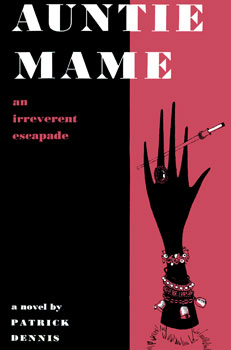
Auntie Mame: An Irreverent Escapade is a 1955 novel by American author Patrick Dennis chronicling the madcap adventures of a boy, Patrick, growing up as the ward of his Aunt Mame Dennis, the sister of his dead father.
Busman's Honeymoon is a 1937 novel by Dorothy L. Sayers, her eleventh and last featuring Lord Peter Wimsey, and her fourth and last to feature Harriet Vane.

Fred Ebb was an American musical theatre lyricist who had many successful collaborations with composer John Kander. The Kander and Ebb team frequently wrote for such performers as Liza Minnelli and Chita Rivera.
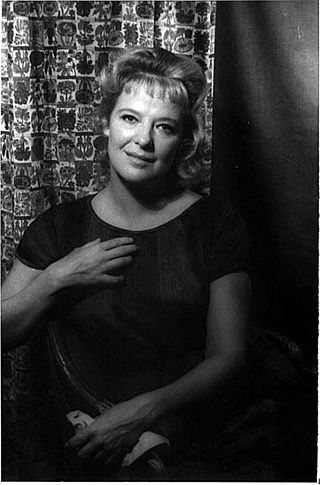
Kim Stanley was an American actress, primarily in television and theatre, but with occasional film performances.
Jerome Chodorov was an American playwright, librettist, and screenwriter. He co-wrote the book with Joseph A. Fields for the original Broadway musical Wonderful Town starring Rosalind Russell. The musical was based on short stories by Ruth McKenney.
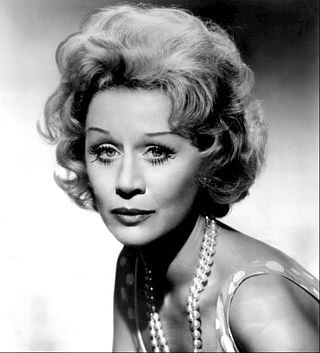
Margaret Leighton, CBE was an English actress, active on stage and television, and in film. Her film appearances included in Anthony Asquith's The Winslow Boy, Alfred Hitchcock's Under Capricorn, Powell and Pressburger's The Elusive Pimpernel, George More O'Ferrall's The Holly and the Ivy, Martin Ritt's The Sound and the Fury, John Guillermin's Waltz of the Toreadors, Franklin J. Schaffner's The Best Man, Tony Richardson's The Loved One, John Ford's 7 Women, and Joseph Losey's The Go-Between and Galileo. For The Go-Between, she won the BAFTA Award for Best Actress in a Supporting Role and was nominated for the Academy Award for Best Supporting Actress.

Francis Finlay, was an English actor. He earned an Academy Award nomination for his performance as Iago in Othello (1965). In 1983, he was directed by Italian filmmaker Tinto Brass in the erotic classic The Key, with Stefania Sandrelli. His first leading television role came in 1971 in Casanova. This led to appearances on The Morecambe and Wise Show. He also appeared in the drama Bouquet of Barbed Wire.
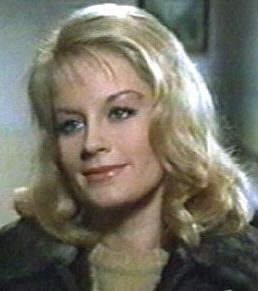
Eileen Mary Ure was a British actress. She was the second Scottish-born actress to be nominated for an Academy Award, for her role in the 1960 film Sons and Lovers.

Richard Keith Johnson was an English stage and screen actor, writer and producer. Described by Michael Coveney as "a very 'still' actor – authoritative, calm and compelling," he was a staple performer in British films and television from the 1960s through the 2010s, often playing urbane sophisticates and authoritative characters. He had a distinguished theatrical career, notably as a cornerstone member of the Royal Shakespeare Company, and was once acclaimed as "the finest romantic actor of his generation."

The Nederlander Theatre is a Broadway theater at 208 West 41st Street in the Theater District of Midtown Manhattan in New York City. Opened in 1921, it was designed by William Neil Smith for theatrical operator Walter C. Jordan. It has around 1,235 seats across two levels and is operated by the Nederlander Organization. Since 1980, it has been named for American theater impresario David Tobias Nederlander, father of theatrical producer James M. Nederlander. It is the southernmost Broadway theater in the Theater District.

William Henry Mettam "Robin" Bailey was an English actor. He was born in Hucknall, Nottinghamshire.
Spring and Port Wine is a 1959 stage play by Bill Naughton. The drama is set in Bolton and concerns the Crompton family, especially Rafe, the father, and his attempts to assert his authority in the household as his children grow up.

Basil Sydney was an English stage and screen actor.

Morning's at Seven is a play by Paul Osborn. Its plot focuses on four aging sisters living in a small Midwestern town in 1928, and it deals with ramifications within the family when two of them begin to question their lives and decide to make some changes before it’s too late.

Andrew John Maxton Cruickshank was a Scottish actor, most famous for his portrayal of Dr Cameron in the long-running UK BBC television series Dr. Finlay's Casebook, which ran for 191 episodes from 1962 until 1971.
David Pugh and Dafydd Rogers, are two West End and Broadway theatre producers.
I Killed the Count is a 1937 play by Alec Coppel. Its success launched Coppel's career.
Alec Coppel was an Australian-born screenwriter, novelist and playwright. He spent the majority of his career in London and Hollywood, specialising in light thrillers, mysteries and sex comedies. He is best known for the films Vertigo (1958), The Captain's Paradise (1953), Mr Denning Drives North (1951) and Obsession (1949), and the plays I Killed the Count and The Gazebo.
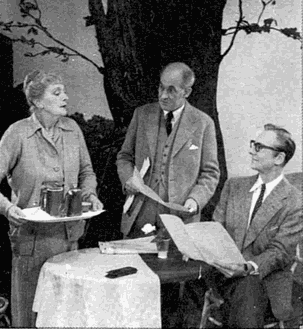
A Day by the Sea is a 1953 play by the British writer N. C. Hunter, first produced in 1953.
References
- ↑ "The Gazebo – Broadway Play – Original | IBDB". www.ibdb.com. Retrieved 23 July 2019.
- ↑ New York Times 13 December 1958
- ↑ New York Daily Mirror 30 December 1958
- ↑ Little, Stuart W; Cantor, Arthur (1971). The playmakers . Dutton. p. 134. ISBN 9780525472780.
- ↑ Frances Stephens, Theatre World Annual (London) vol 11, Barrie and Rockliff 1960
- ↑ Amnon Kabatchnik, Blood on the Stage, 1950-1975: Milestone Plays of Crime, Mystery, and Detection, Scarecrow Press 2011
- ↑ "The Gazebo". www.bbc.com. Retrieved 10 August 2023.